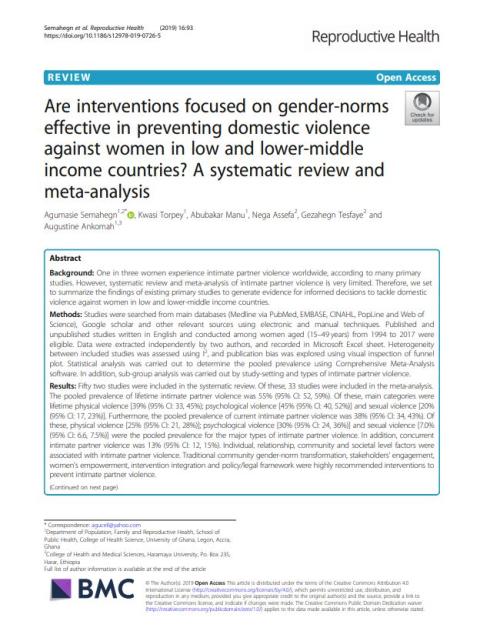- Journal article
- 7 Junio 2018
Are interventions focused on gender-norms effective in preventing domestic violence against women in low and lower-middle income countries? A systematic review and meta-analysis

Domestic violence against women (VAW) is a well-recognized public health concern and systematic human rights violation. It has a serious negative impact on women’s lives. Domestic VAW is common and still unacceptably high in different parts of the world as observed from several primary studies which have been conducted on the frequency and its associated factors. Additionally, some interventional studies have been conducted in some parts of the world revealed that gender-norms transformation through behavioral change and communication focused program can promote gender-equality norm and avert domestic VAW. Summarized or synthesized evidence is still needed to inform and persuade policy makers and stakeholders, so they can take an evidence based decision making approach. One of the most challenging issue is that most countries’ governments have considered VAW as a minor and socially tricky issue. There is some ambiguity as to whether VAW is a private or public matter. This systematic review and meta-analysis aimed at summarizing existing primary study findings to determine its level and associated factors, identify effective interventions to prevent domestic VAW and make key recommendations. The purpose is to contribute evidence to be used by program planners, policy makers, clinicians and other stakeholders to make an informed decision on the issue of domestic VAW. The study showed that more than half of the women experienced VAW, and almost one-third of the women have experienced current VAW. Intervention strategies should focus on traditional gender role transformation to minimize the relationship power-gap and prevent VAW.
- Countries / Regions:
- Global
Related resources
Blog
14 Abril 2025

Report
5 Marzo 2025

Blog
10 Febrero 2025
